Between Google’s AI-generated overviews, constant algorithm shifts, and rising competition in every vertical, one thing has become clear, “you can’t manage what you can’t measure”.
For SaaS companies and agencies, the challenge is sharper.
Marketing leaders need to tie SEO directly to SQLs, trials, and ARR growth. This is where rank tracking software comes in.
In this guide, we’ll compare the best SEO rank tracking tools of 2025, explain what makes each unique, and help you select the one that aligns with your business stage, resources, and growth goals.
Table of Contents
What Is an SEO Rank Tracker (and Why It Matters in 2025)?
At its core, an SEO rank tracker is a software tool that monitors your website’s keyword rankings across search engines like Google, Bing, and sometimes YouTube or Amazon.
👉 But in 2025, rank tracking goes far beyond “what position am I in?”
AI-driven search results mean that your site could appear in AI Overviews, featured snippets, or knowledge panels rather than just standard blue links (see our SGE & AI Overviews impact guide for how rankings now span generative panels).
Location and device differences are more dramatic than ever, your ranking in “San Francisco, mobile” might look very different from “London, desktop.”
Investors, CMOs, and clients expect SEO reports tied to pipeline metrics, not vanity KPIs that connect rankings to demos, trials, and ARR.
Without accurate rank data, growth teams risk:
- Missing new opportunities for top-funnel acquisition.
- Misreporting ROI to leadership or clients.
- Falling behind competitors who are monitoring SERPs more closely.
🤙 Book a 30-min fit call with us
Quick Comparison of the Best SEO Rank Tracking Tools (2025)
| Tool | Best For | Features | Pros | Cons |
|---|---|---|---|---|
| Semrush | All-in-one, Agencies | SEO suite, integrations, competitor data | Robust, enterprise-ready | Expensive |
| SE Ranking | SMBs & SaaS | Accurate daily data, reports, API | Affordable, scalable | UI less polished |
| Mangools | Startups | Lightweight, easy to use | Cheap, simple | Limited advanced features |
| Nightwatch | Agencies | Local/device tracking, white-label reports | Scalable, flexible | Setup complexity |
| Ahrefs | SaaS / Competitor intel | Backlink + rank tracking | Market-leading competitor data | Pricey, rank tracking basic |
| PRT | Agencies scaling clients | Bulk rank tracking, reports | Low cost, white-label ready | Narrow tool |
| BrightLocal | Local businesses | Maps/pack tracking, citations | Strong for local SEO | Not full-stack SEO |
Best SEO Rank Tracking Tools for 2025
Choosing the best SEO rank tracking tools in 2025 is critical for agencies and businesses that want accurate keyword insights, automated reporting, and scalable solutions to stay ahead in search rankings.
1. Semrush – Best All-in-One SEO Platform
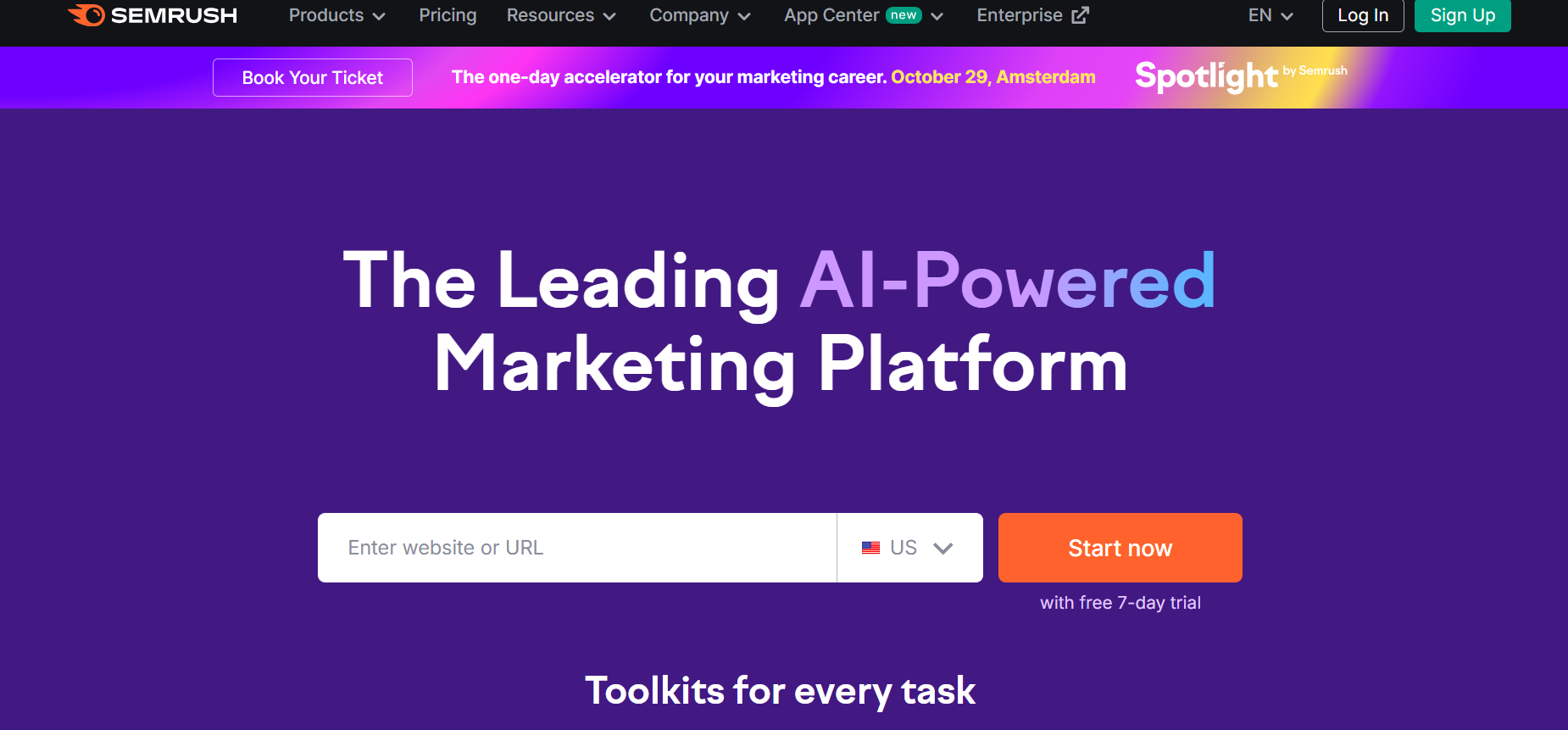
Who it’s for: Agencies, mid-market SaaS teams, and enterprises that need more than just rank tracking.
Semrush has built its reputation as the most comprehensive SEO and marketing toolkit on the market. Its rank tracking module is powerful, but the true value comes from the ecosystem: keyword research, backlink analysis, site audits, competitor benchmarking, and integrations with GA4, GSC, and Looker Studio.
For teams running multi-channel growth campaigns, Semrush acts as the central hub that connects strategy and execution. Make sure your evaluations consider AI surfaces & SERP features when comparing tool visibility beyond “10 blue links.”
Pros:
- Industry-leading data accuracy across global and local SERPs.
- Robust integrations with popular analytics and reporting tools.
- Comprehensive all-in-one platform for SEO, PPC, and content marketing.
Cons:
- Pricing is steep for smaller teams or startups.
- The breadth of features can feel overwhelming.
- Many users only leverage a fraction of the full suite.
👉 If your SEO operation touches multiple teams (content, demand gen, product marketing), Semrush ensures everyone works from the same dataset.
2. SE Ranking – Best Balance of Accuracy & Affordability
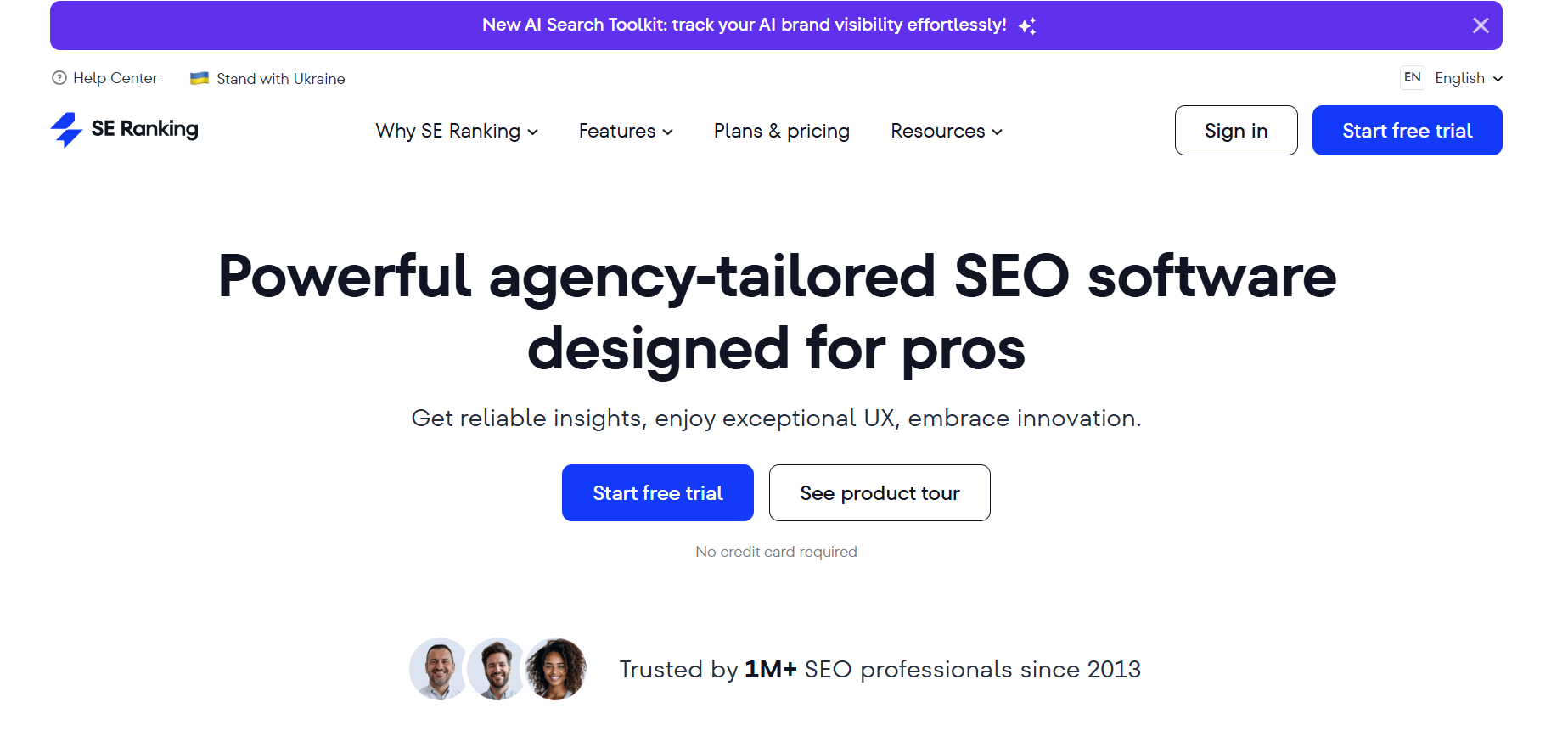
Who it’s for: Growth-stage SaaS companies and SMBs scaling organic acquisition.
SE Ranking is widely praised for pinpoint accuracy and scalability. It provides daily keyword data, flexible reporting, and integrations, all at a price point that fits growth-stage businesses. Agencies also favor SE Ranking because of its white-label reporting and API access, which makes client delivery seamless, operationalizing consistency with a daily rank-tracking cadence your team can follow.
Pros:
- Exceptionally accurate daily keyword tracking.
- Flexible pricing tiers suitable for growing businesses.
- White-label reports and dashboards are ideal for agencies.
Cons:
- UI is less polished compared to Semrush or Ahrefs.
- Limited backlink database compared to all-in-one tools.
- Some advanced analytics require higher-tier plans.
👉 A smart choice for SaaS teams moving from “scrappy SEO” to predictable, ROI-driven growth.
3. Mangools (SERPWatcher) – Simple & Beginner-Friendly
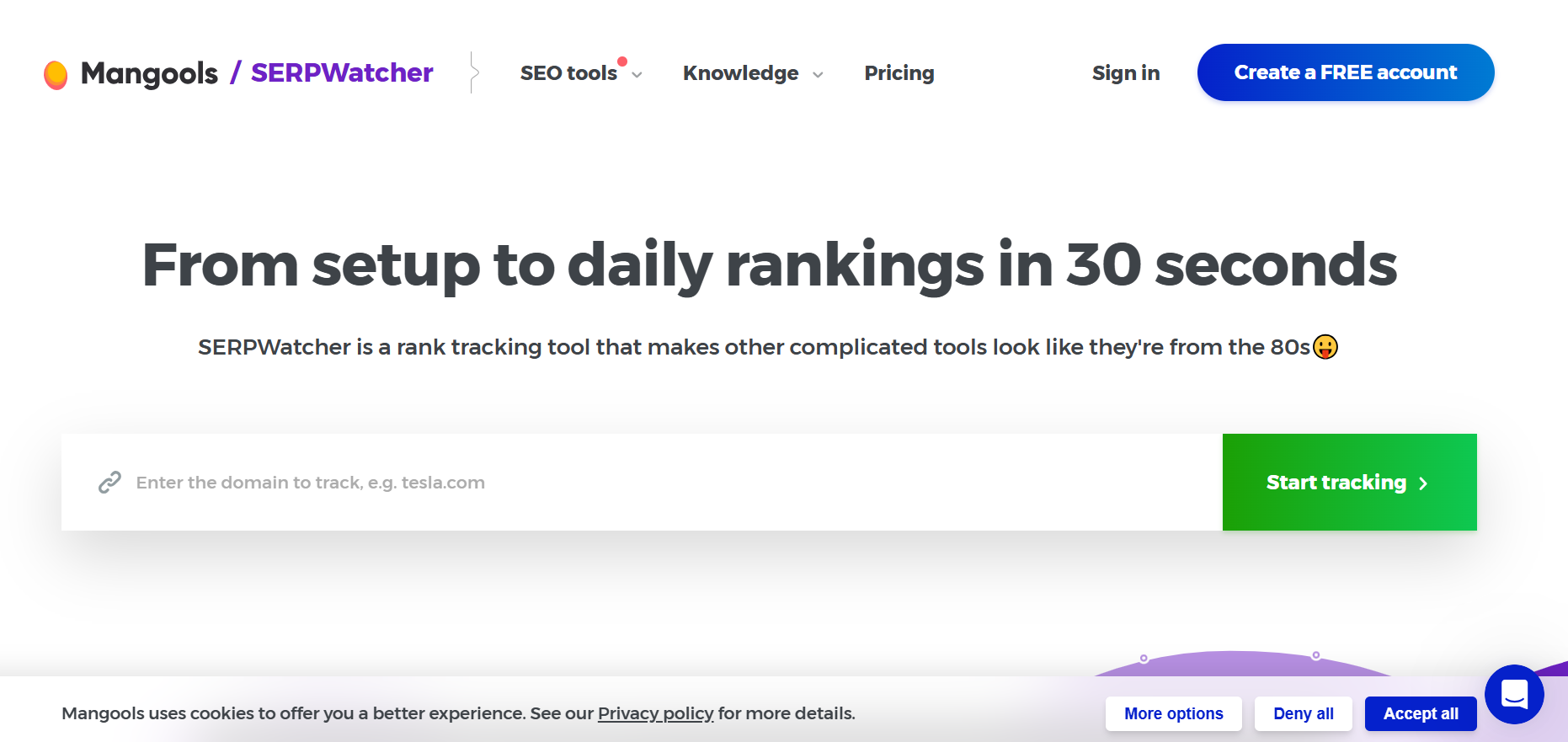
Who it’s for: Startups, bloggers, and lean teams investing in SEO for the first time.
Mangools’ SERPWatcher is designed for simplicity. It strips away unnecessary complexity and focuses on delivering clear rank-tracking insights. For founders, early-stage teams, or non-technical marketers, Mangools offers an affordable entry point into SEO visibility without requiring advanced expertise.
Pros:
- Very affordable, making it accessible to startups and solopreneurs.
- Incredibly user-friendly with a shallow learning curve.
- Clean, simple reports that are easy to share.
Cons:
- Lacks advanced features like competitor tracking.
- Reporting isn’t customizable at an agency level.
- Not designed to scale for large teams or multiple client accounts.
👉 Best if you want a tool that “just works” without complexity or steep costs.
4. Nightwatch – Best for Agencies with Advanced Reporting Needs
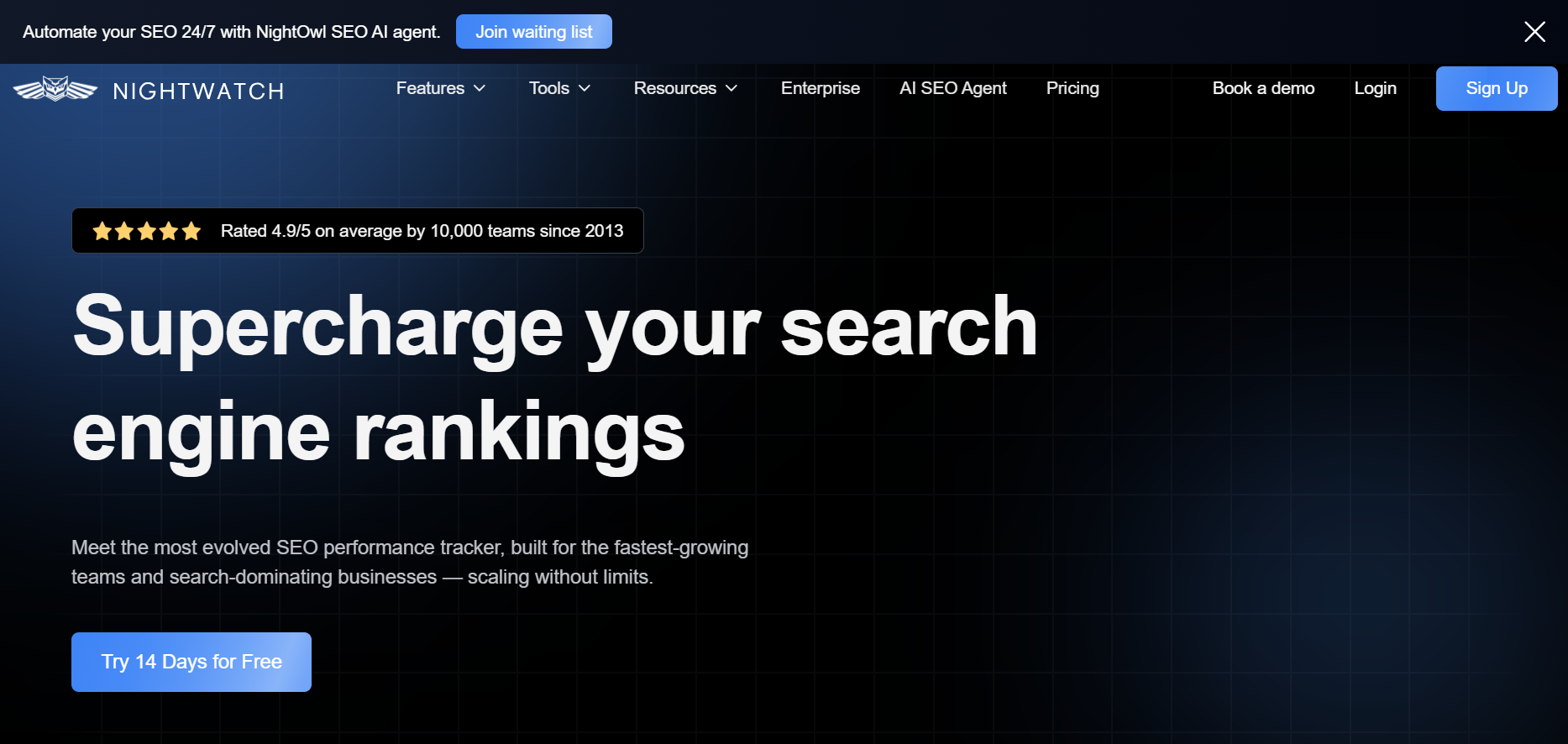
Who it’s for: Agencies managing multiple clients across different geographies.
Nightwatch is engineered for agencies that prioritize reporting accuracy and customization. It excels at multi-location and multi-device tracking, offering granular insights that generic tools often miss. Its white-label reporting is a game-changer for agencies needing to present professional, client-ready dashboards.
Pros:
- Highly accurate local and mobile tracking capabilities.
- White-label reporting that impresses clients.
- Scales well with multiple accounts and large keyword sets.
Cons:
- Initial setup can be complex for new users.
- Interface feels less intuitive compared to mainstream tools.
- Smaller ecosystem outside of rank tracking (lacks full-suite features).
👉 Perfect for agencies tired of cobbling together spreadsheets for client reporting.
5. Ahrefs – Best for Competitor Tracking & Research
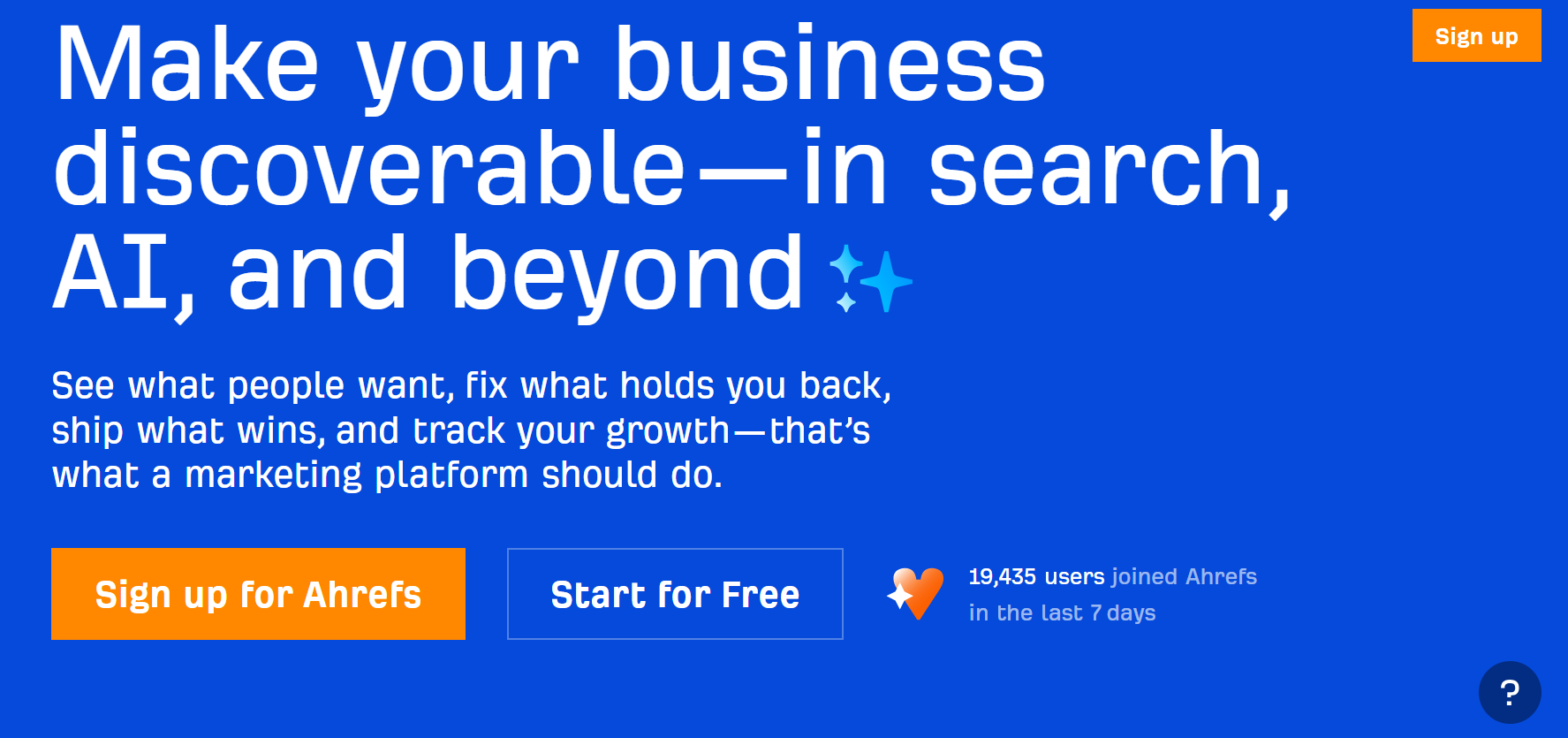
Who it’s for: SaaS teams and content marketers competing in saturated niches.
Ahrefs is best known for its massive backlink database and competitive research capabilities, but its rank tracking tool is also reliable. It’s a strong fit for SaaS companies where competitive benchmarking and content-led growth drive acquisition. While rank tracking isn’t its deepest function, pairing it with Ahrefs’ other datasets makes it a powerful dual-purpose platform.
Pros:
- Industry-leading competitor and backlink intelligence.
- Accurate keyword rank tracking with historical data.
- Strong content and keyword gap analysis tools.
Cons:
- Expensive for smaller teams.
- Rank tracking features less advanced than SE Ranking or Nightwatch.
- Limited white-label reporting options for agencies.
👉 Ideal for marketers who want competitor intelligence baked into rank tracking.
6. ProRankTracker – Focused Rank Tracking & White-Label Reporting
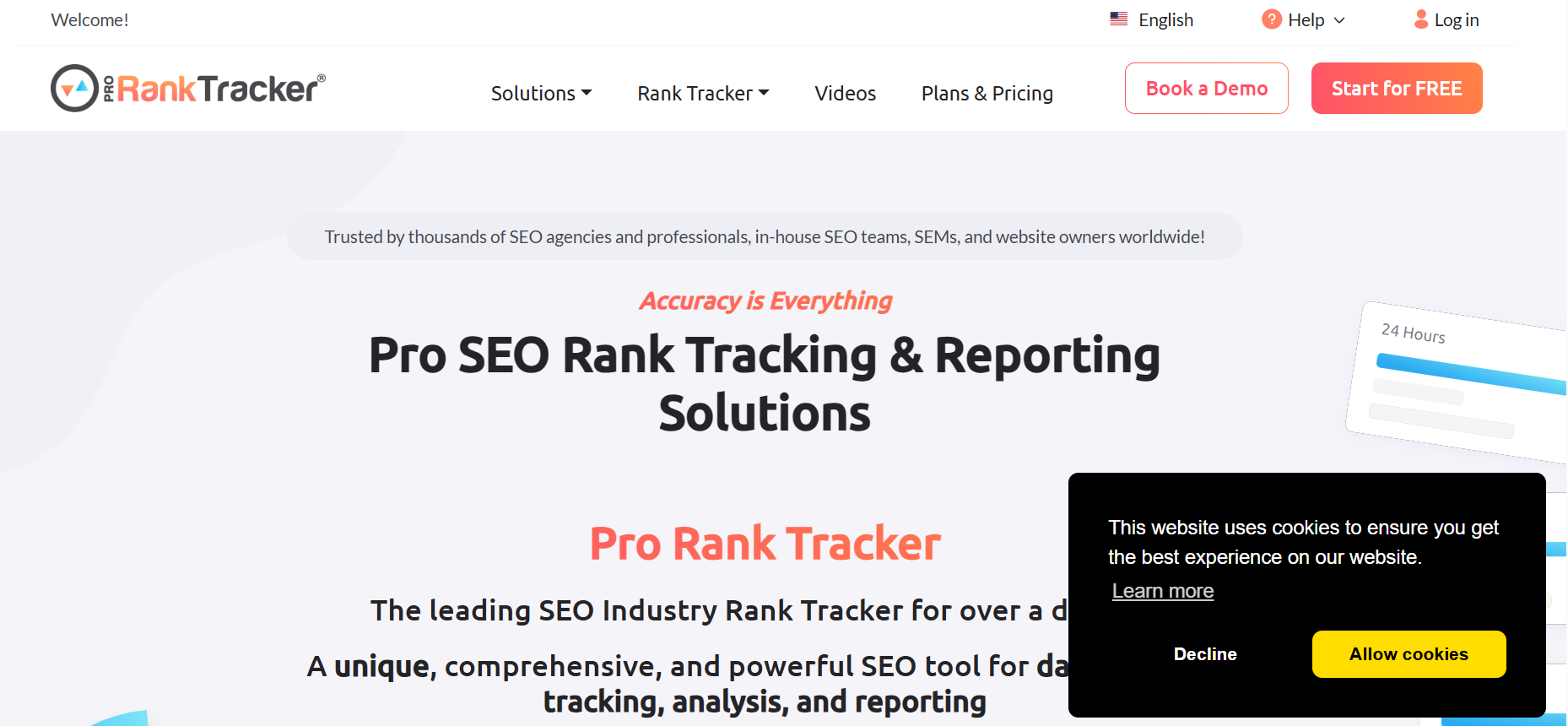
Who it’s for: Agencies scaling SEO operations with large keyword volumes.
ProRankTracker is a no-frills rank tracking solution built for scalability. It’s especially valuable for agencies that manage hundreds or thousands of keywords across multiple clients. With its affordable bulk pricing and white-label dashboards, it delivers on accuracy without adding unnecessary extras.
Pros:
- Very affordable bulk keyword tracking.
- Customizable white-label reports for client delivery.
- Supports detailed device- and location-specific tracking.
Cons:
- Lacks broader SEO features (e.g., site audits, keyword research).
- The user interface isn’t as sleek as premium tools.
- Limited ecosystem compared to all-in-one platforms.
👉 A great fit for agencies with high keyword volume and tight budgets.
7. Local SEO Tools (BrightLocal, Local Viking) – Best for Location-Based Businesses
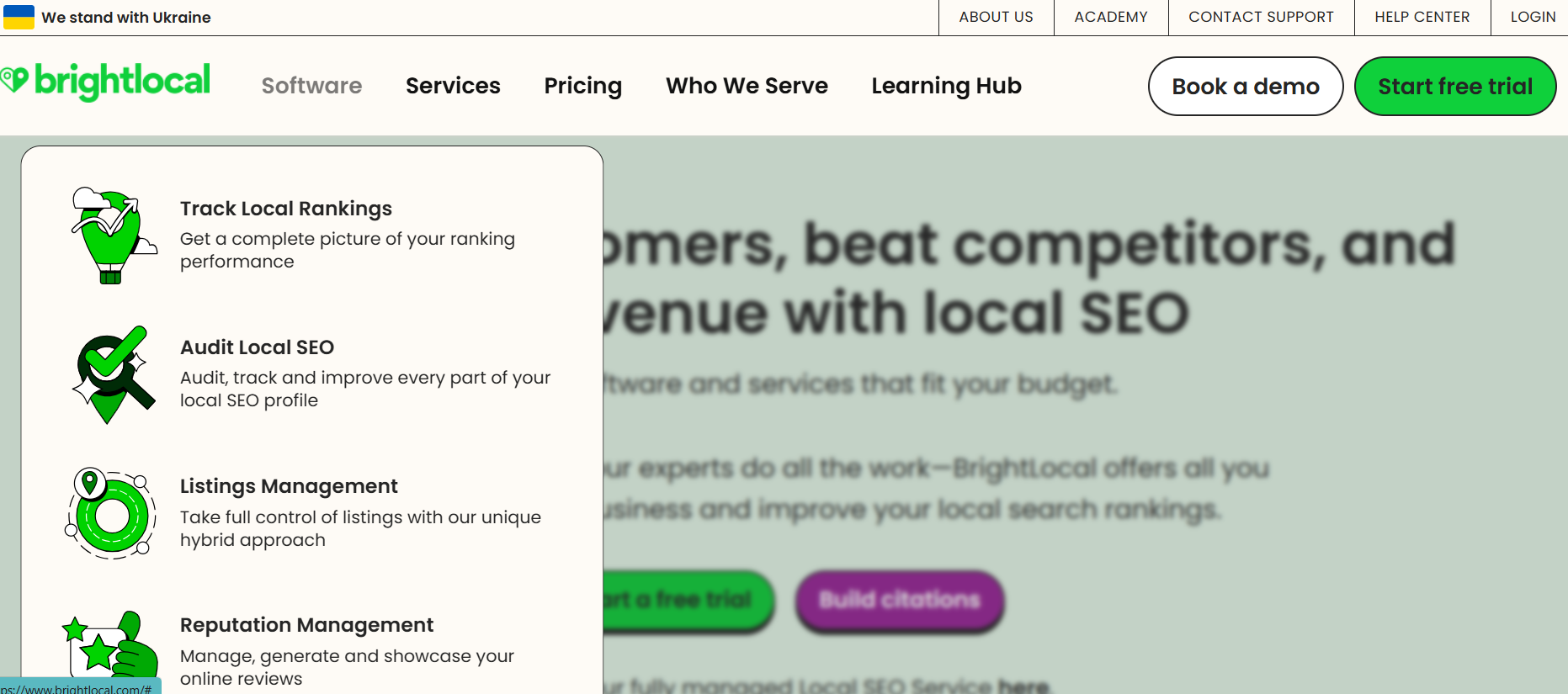
Who it’s for: SMBs, franchises, and local businesses reliant on local visibility.
Tools like BrightLocal and Local Viking go deeper than generic trackers, offering granular local rank insights across Google Maps, local packs, and even citation monitoring.
For brick-and-mortar businesses, healthcare providers, and franchises, these tools provide the visibility that drives real-world foot traffic.
Pros:
- Hyper-local tracking across cities, neighborhoods, and even ZIP codes.
- Strong integration with Google Maps and local SEO features.
- Built-in tools for citations and reviews alongside rankings.
Cons:
- Narrow scope, not useful for global SaaS or enterprise campaigns.
- Limited advanced reporting customization.
- Requires pairing with broader SEO tools for full coverage.
👉 The obvious choice if your growth depends on dominating the local 3-pack.
Key Features to Look for in Rank Tracking Software
The real challenge isn’t finding a rank tracker (it’s finding one that helps you grow, scale, and prove ROI). In 2025, features that were once “nice-to-have” are now non-negotiables.
👉 Accuracy comes first. Daily keyword updates are essential. Weekly averages hide volatility and can miss competitor moves that cost you visibility, build a cadence with this daily rank-tracking workflow.
👉 Location targeting matters. Rankings differ by region, city, or even ZIP code. For SaaS expanding internationally or SMBs competing locally, this granularity is critical.
👉 Device tracking is a must. Mobile and desktop results often differ, and with mobile-first indexing, you can’t afford to ignore mobile rankings.
👉 SERP insights change the game. Ranking #5 doesn’t mean what it used to. Modern tools should show visibility across snippets, AI overviews, maps, and video results, see our AI Overviews & SERP features guide.
👉 Reporting should be seamless. Clear, professional dashboards save hours of work and help you prove ROI to clients or leadership. White-label options are a plus for agencies.
👉 Scalability is key. As you grow, keyword lists expand fast. The right tool should scale without blowing up your budget.
👉 Integrations tie it all together. Connecting with GA4, Search Console, or CRMs allows you to link rankings directly to pipeline and revenue.
In short: the best rank trackers are accurate, scalable, and connected, anything less risks making SEO look like a vanity metric instead of a growth driver.
▶️ Want a tool shortlist custom to your stack? Book a 30-min fit call or Request an SEO audit.
How to Choose the Right Rank Tracker for Your Business
Choosing the right rank tracker really comes down to your stage of growth, resources, and priorities. Not every business needs an enterprise-grade solution, and not every startup can afford one. Here’s how to align the right tool with your specific situation:
▶️ If you’re a beginner or startup → Go with Mangools. Its simplicity and low price make it a great entry point. You won’t get overwhelmed by unnecessary features, and you’ll have just enough data to understand whether your SEO efforts are paying off. Perfect for founders, solopreneurs, or teams just dipping their toes into SEO (if you want a sanity check on your choice, book a 30-min fit call and we’ll map features to your funnel objectives).
▶️ If you’re a growth-stage SaaS → SE Ranking hits the sweet spot. At this stage, you need accuracy, scalability, and affordability all at once. SE Ranking gives you reliable daily data without burning through your marketing budget. Plus, its reporting features make it easier to show leadership how rankings are translating into trials and ARR, pair your trial with an ROI-focused SEO audit request so we can validate tracking → pipeline.
▶️ If you’re an agency → Nightwatch or Semrush are your best bets. Agencies live and die by client reporting, and both of these tools deliver the scalability, integrations, and white-label dashboards you’ll need to retain and impress clients. Nightwatch is especially strong for local/multi-location reporting, while Semrush offers a full-stack platform if you want rank tracking plus competitive and content tools.
▶️ If you’re a local business → BrightLocal is custom-made for you. Competing in local SEO is all about visibility in maps and local packs, and BrightLocal provides that precision. From citations to reviews to hyper-local rankings, it’s built to help brick-and-mortar businesses win in their neighborhoods.
💡 Pro Tip: Don’t commit blindly. Always run free trials with at least two or three tools. Compare their reporting outputs against the KPIs your leadership team or clients care most about, whether that’s ARR, trial signups, or local leads. The “best tool” is the one that makes your results easiest to see, share, and act on.
Action Plan & SEO Rank Tracking Checklist
If you’re ready to put rank tracking into practice, here’s a simple 5-step setup checklist to get started. Think of it as your starter playbook for building SEO accountability:
1. List Your Top 50–100 High-Intent Keywords
Focus on keywords that directly connect to trials, signups, or sales, not just vanity traffic. These are the terms you’ll want to monitor most closely.
2. Define Your Scope: Global, Local, or Multi-Device
Decide whether you need to track results across multiple countries, pinpoint local searches, or compare mobile vs desktop rankings. This clarity will guide your tool choice.
3. Shortlist Two Tools That Align With Your Stage
Beginners might pick Mangools and SE Ranking; agencies might test Nightwatch and Semrush. Keep your shortlist realistic (2–3 tools max) to avoid analysis paralysis.
4. Run Free Trials and Compare Reports
Don’t just look at rankings. Export reports and ask, “would this impress my leadership team or clients?” Evaluate ease of use, accuracy, and reporting clarity. Or request an SEO audit and we’ll benchmark your reports against pipeline KPIs.
5. Roll Out The Winner Across Your Team Or Accounts
Once you find the right fit, standardize it. Train your team, set up recurring dashboards, and make rank tracking part of your monthly growth review process.
Frequently Asked Questions
In 2025, search is more volatile than ever thanks to AI-generated results, featured snippets, and local packs. Businesses need rank trackers to stay competitive, measure performance, and tie SEO visibility directly to business outcomes like leads, trials, and ARR.
Google Search Console is useful, but it’s limited. It only provides average positions, which don’t reflect the daily ups and downs of SERPs. Plus, it doesn’t offer the client-ready dashboards or reports that businesses and agencies need to prove ROI. A dedicated rank tracker fills those gaps.
Yes, if SEO is an important growth channel for you. SERPs today are highly volatile. Rankings can change overnight due to competitor updates, algorithm shifts, or new SERP features like AI overviews. Daily tracking ensures you catch opportunities and risks in time to act.




